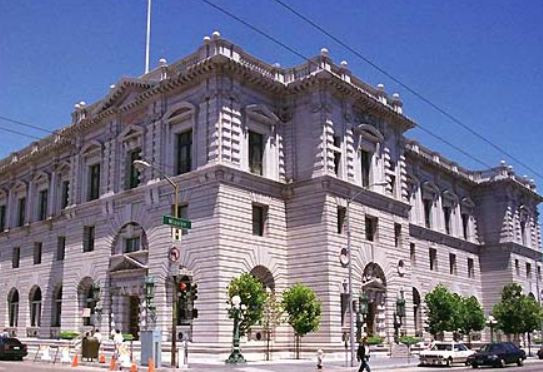The United States Court of Appeals for the Ninth Circuit based in San Francisco, California has ruled unconstitutional president Donald Trump's January 2017 executive order cutting-off federal funds to so called "sanctuary cities. "
In a 2-1 decision, the Ninth Circuit said Trump exceeded his authority when he threatened to withhold funds from sanctuary cities that don't fully cooperate with U.S. immigration authorities. Sanctuary cities are those that limit their cooperation with the federal government's effort to enforce immigration law. There are over 500 jurisdictions in the U.S., including states and municipalities, with sanctuary policies in place.
"Absent congressional authorization, the administration may not redistribute or withhold properly appropriated funds in order to effectuate its own policy goals," wrote Chief Judge Sidney Thomas for the majority.
This new decision supports one made by Judge William Orrick of the United States District Court for the Northern District of California, who ruled Trump's executive order of January 2017 calling undocumented immigration a "clear and present danger" to national security was "coercive." Orrick also said spending powers belonged to the legislative, not executive, branch of government.
Trump's illegal fight against sanctuary cities suffered a huge setback on July 27 when U.S. District Judge Harry Leinenweber denied a federal government motion to dismiss Chicago's lawsuit over Sessions' efforts to force cooperation with federal immigration enforcement officers.
Leinenweber granted Chicago's motion for a summary judgment on the first two counts of the suit, which argued the Department of Justice was overstepping its legal authority. He then denied a motion by Sessions to dismiss those counts.
"Today's opinion in favor of Chicago and against the Trump Justice Department marks a major win for all Chicagoans and a significant victory for public safety," said Chicago Mayor Rahm Emanuel. "Welcoming immigrants, refugees and dreamers from every corner of the globe is part of Chicago's history, and part of our future, no matter which way the political winds are blowing in Washington."
Chicago sued Sessions in August 2017 after the Justice Department ordered Chicago and other sanctuary cities to give 48-hours notice before releasing undocumented immigrants from custody. DOJ contends this warning period will allow ICE agents access to jails. It also wanted sanctuary cities to share citizenship information with the federal government.
Sessions warned Chicago that if they didn't comply with his orders, the city can't be eligible for Edward Byrne Memorial Justice Assistance Grants, which is a leading source of federal law enforcement grant funding.
Previous to the Chicago ruling or in September 2017, Leinenweber issued an injunction against Sessions' order that required police to cooperate with federal agents or risk losing the Edward Byrne Memorial Justice Assistance Grants. His ruling last week made the injunction final.
Leinenweber's injunction was initially nationwide. This June, however, the Seventh U.S. Circuit Court of Appeals restricted it to Chicago. The full appeals court will decide in September if injunction should be nationwide.






